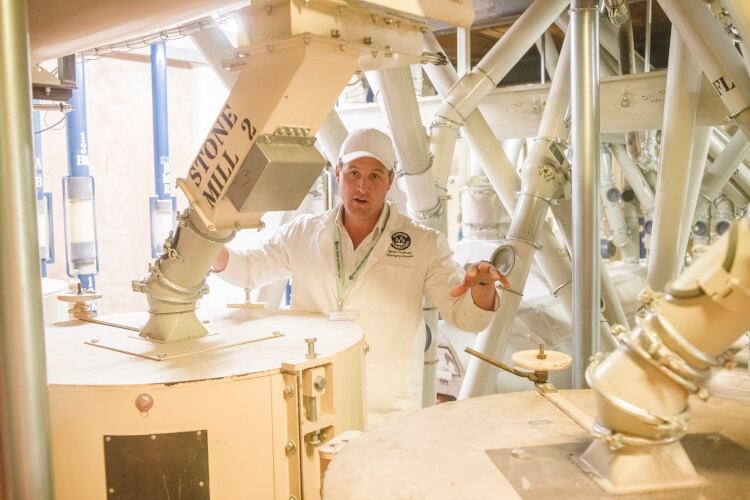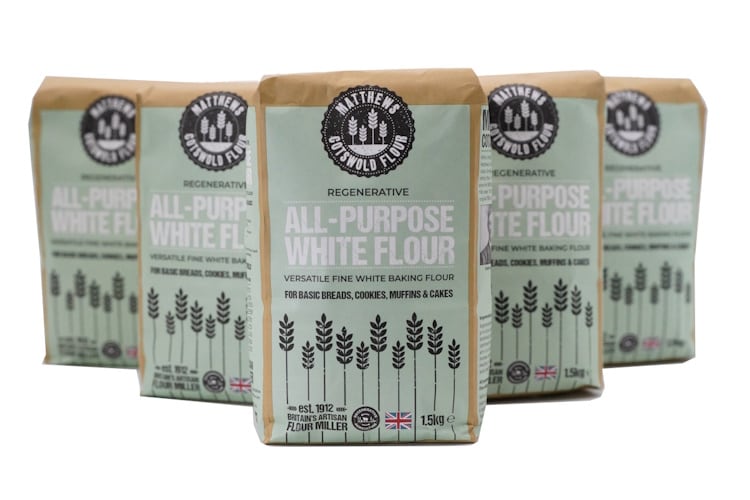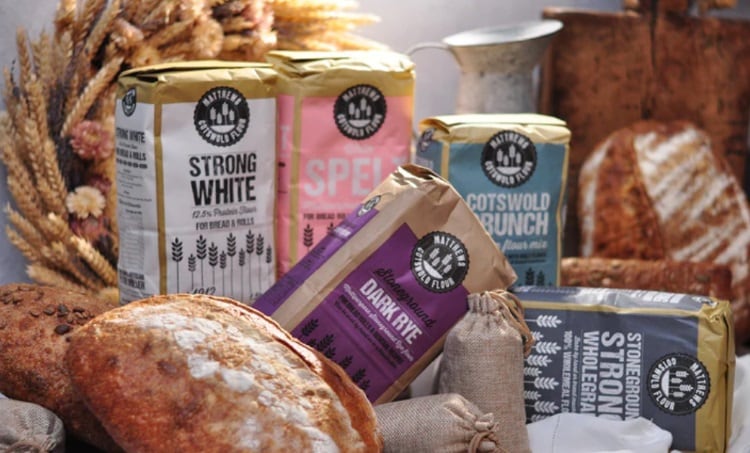Matthews believes regenerative farming is the next big thing and over the next decade, sales of regeneratively produced food will eclipse organic sales. As such, he’s calling on all food producers to move to a regenerative sourcing model now to capitalise on this exciting opportunity.
Regenerative vs organic

Organic farming was a term coined in 1940, describing the rising movement of food produced without chemical fertilisers, pesticides or antibiotics. The organic movement grew in response to the industrialisation of British agriculture that occurred in the immediate post-war years. It is now a worldwide industry but, more than 80 years on, it remains a relatively niche market, thanks to its high production costs and low levels of productivity.
Regenerative farming, on the other hand, is the relatively ‘new’ kid on the block.
Although many of its practices hark back to the pre-industrialisation era of farming, it has only been a recognised term in the past 40 years and gained real interest in the past few decades.
Regenerative Agriculture (RA) is a term that refers to a farming model of growing food that protects and improves soil health, biodiversity, water retention and quality. RA farmers are committed to using a host of planet-friendly practices, including reducing soil disturbance, implementing wide crop diversity, integrating livestock, maintaining living routes and protecting the soil surface.
While organically farmed products may be produced using RA methods and vice versa, this is not always the case as the focus for each is different. For organic farming, it’s all about growing a product without synthetic inputs but for regenerative farming, it’s all about improving the land where the product is grown.
Grabbing a bigger market share

Both methods have their merits, however, Matthews believes RA products have a key advantage that looks set to win them a bigger share of the market.
That differentiator is yield. RA can produce higher yields than organic farming because its methods improve the soil quality and fertility. This, in turn, supports more productive and resilient crops.
A higher yield for the farmer means lower costs for the producer who can pass these on to the consumer. Regeneratively farmed products can therefore be sold at a price more comparative to non-organic products than organic products, relieving, to a considerable degree, the financial barriers that have prevented mass adoption of the latter.
Take, for instance, Matthews Cotswold Flour’s recently launched All Purpose Regenerative White Flour, a UK first.
“It’s a flour that we have produced using wholly regeneratively farmed grains and yet we are able to sell it at a competitive price that makes it affordable for all,” explained Matthews.
“Unlike organic products that unfortunately come at a premium, the higher yields of regeneratively farmed grain means that a much wider range of consumers can afford to support these farming practices that make a real difference to our planet.”
He added, “We believe it is the duty of all food producers to move to a regenerative sourcing model.
“For years, British farmers have been incorporating these practices and making a real tangible change to the landscape. It is now the turn of food producers to play their part and get these incredible products into people’s homes.”
Trading grain and milling flour in the heart of the Cotswolds since the 1800s, Matthews Cotswold Flour believes its local partnerships, traditional stoneground milling methods and premium grains make for better baking. The miller’s portfolio boasts a range of over 100 varieties and flour, designed for both professional and home bakers.





